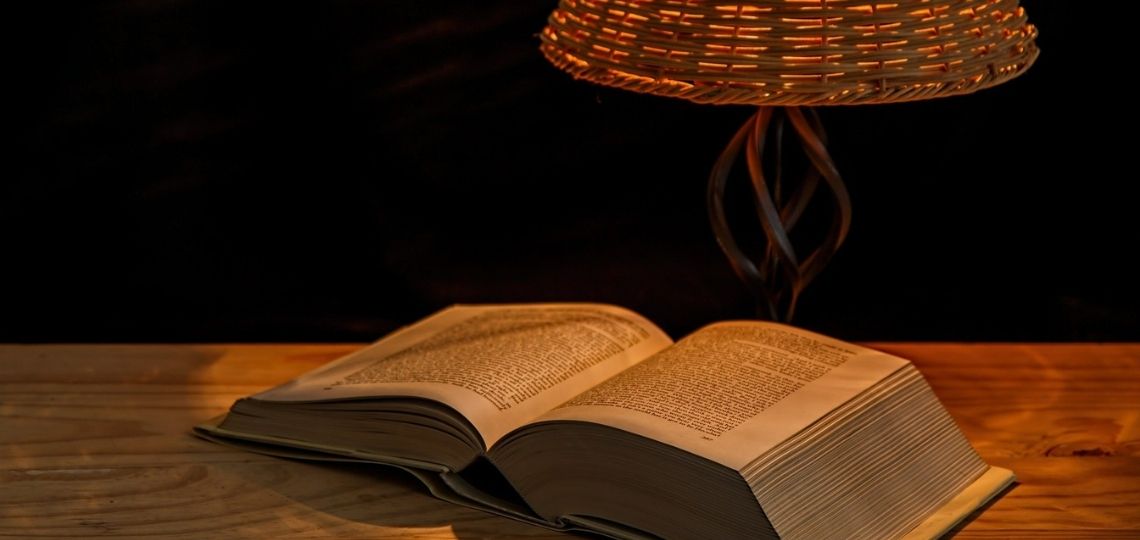
Sleep Hygiene Checklist: Sleep Better at Night Naturally
Do you find yourself lying in your bed at night, just staring into the ceiling, and no matter how hard you try you just could not sleep? Do you also feel tired most of the time but when you’re about to sleep, your mind is so active overthinking? These are so frustrating, right? But, don’t worry. We can still sleep better at night naturally by having a sleep hygiene checklist.
What is Sleep Hygiene?
I just heard about this term recently, and I found it fascinating that there is actually a term for this.
Basically, sleep hygiene is a good sleeping habit. But, this is not just about what we do before sleeping. It also includes our sleeping environment and our daily activities.
Even if we follow all those bedtime routines we researched and our bedroom is sleep-conducive, but we live an unhealthy lifestyle daily, sleep might not come naturally at night.
By having good and solid sleep hygiene, we are improving the quality of our sleep. And we know and feel that having a good sleep has many benefits.
Signs you have bad sleep hygiene.
Just in case you don’t notice, here are some signs that you have a bad sleep hygiene:
- Difficulty sleeping
- Sleep disturbance
- Irregular sleeping pattern
- Sleepiness and tiredness in daytime
- Sleep deprivation
In general, when you always don’t have enough sleep, it means that you have bad sleep hygiene. And this is not normal, especially if it is a perpetual feeling of tiredness and fatigue. Bad sleep hygiene can have a great toll on your health.
Fortunately, we can do something about this, unless it is a sleeping disorder, which needs a specialist. We can reset our body clock, eat healthy food, exercise daily, follow a routine and sleep hygiene checklist.
You may also want to read these:
How to Reset Body Clock: Follow these 8 Tested Methods.
Early Morning Routine: Be Energized to Seize the Day.
Sleep Hygiene Checklist.
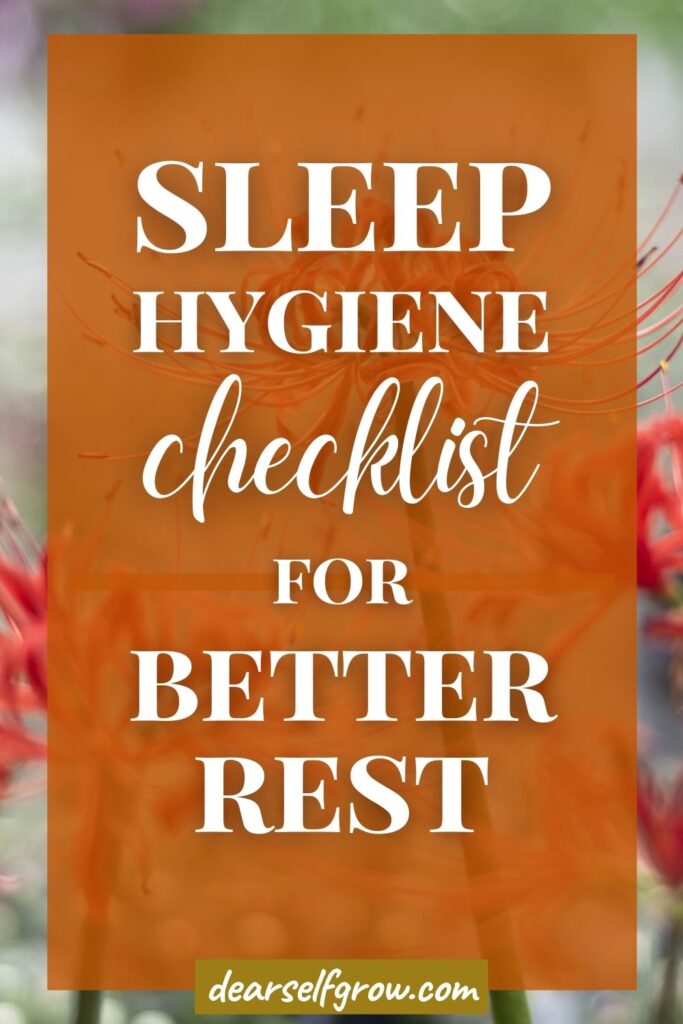
Here are 10 ways to sleep better at night naturally. This checklist won’t be effective if there is no consistency. Try to do one at a time so your body can adjust well.
1. Stick to a consistent sleep schedule.
It is hard to fall asleep when we sleep at random hours. Like, sometimes we sleep at 10 PM and sometimes at 3 AM. This confuses our body, specifically our internal body clock.
Aside from confusing our body clock when to wake us up or relax us, an inconsistent sleep schedule is also affecting the timing of our organs functioning. A well-regulated body clock is not just so we can have proper sleep. But, it is also important for our health.
By having a set time, we are training ourselves to fall asleep and wake up on our desired time. This also makes sure that we are awake and active when we are supposed to, and asleep and well-rested the entire time we are supposed to sleep.
This can be hard to achieve at first but by fixing your body clock, you can do this.
2. Make a bedtime routine.
A bedtime routine is a great way to signal our body that it is time to sleep. It should be relaxing so that we can fall asleep easier.
A hot shower and tea can be added to our bedtime routine. We can also insert here some relaxing hobbies that we have. Setting the environment by adjusting the temperature and light in our rooms can also be part of our routine.
This can differ from person to person. So, we should know what can relax us.
For example, reading a novel relaxes other people and it can help them fall asleep. But for me, reading stimulates my brain and gets me thinking about what I read when I am about to fall asleep (except when it is something academic. I will fall asleep immediately lol).
To really stick with a routine, try to add a routine gradually to not overwhelm yourself.
3. Stay away from stress-inducing activity.
There are many stress-inducing activities such as watching the news, reading emails, scrolling through social media, and many more!
If we are stressed before going to bed, the tendency is that our brain will continue responding to that stress. Instead of dozing off, we will overthink or worry.
And I know that there are many of us who suddenly feel energized after seeing something stressful.
One personal example of this is a comment by a relative of mine on one of my status on Facebook. It said something hilarious that opposed what I believe. I wanted to let it go and just sleep but what she commented boiled my blood. Now, this made me awake, thinking about what I will reply. In the end I just ignored and tried to understand a boomer comment.
That overthinking clearly did not do me any good!
To avoid these stressful situations before sleeping, make sure you know what can be the triggers and keep away from them.
4. Turn off electronics or keep distractions away.
Nowadays, stress usually comes from electronics. It can be from television, phones, laptop, etc. If we want to stay away from stress, the best thing to do is to turn off its source.
Aside from being a source of stress, electronics can suppress sleep because of the emitted light. This blue light can disrupt our body clock because it can trick our body that it is daytime; this light affects the production of melatonin, an important hormone for our circadian rhythm.
Take note that electronics are not the only possible distractions. It can also be those paper works we bring home even though we know that we won’t be able to do them at home.
Or it can be midnight snacks. There are times that just by thinking about it makes you hungry ugh.
Keep those distractions away by not putting them near the bedroom or by hiding them in the closet.
5. Make your bedroom and bed relaxing.
To be productive, we make sure that our workplace is conducive for working. We clean our table and organize our files.
This is the same with our bedroom, specifically our bed. It is for sleeping and we have to make sure that we can sleep on it. It has to be relaxing.
Will it be relaxing if there is too much clutter on our bed or on our bedroom’s floor? Well, sometimes, it’s easier not to turn the lights on in our bedroom so that we won’t see the clutter but still! It will surely bother us sooner or later.
There are so many ways to make the bedroom relaxing such as lighting scented candles, turning on music, or adjusting the temperature. Additional tip, only go to your bedroom if you want to rest. And use your bed for sleep only.
6. Mind what and how much you eat and drink.
What and how much we eat and drink at night, especially before bedtime affects the quality of our sleep.
There are foods that can upset our stomach and may negatively affect our sleep. These are fatty or spicy foods.
And obviously, we know that caffeine increases our alertness and this stays in our body for a long time. So, it is advisable to not take any caffeine at least 6 hours before sleeping.
Meanwhile, there are some who drink alcohol to help them sleep. Yes, alcohol can help others feel drowsy but there are studies that say it will be hard to sleep throughout the night. Also, hangovers are the worst!
With all of these, it is better not to eat before bedtime. But, it is also hard to sleep if the stomach is totally empty. We can still eat or drink especially those which can boost our sleep. Just mind how much. Water, for example, is okay. But, if we drink too much water, we tend to wake up in the middle of our sleep to pee.
7. Avoid “naps.”
You may be wondering why this has to be part of the sleep hygiene checklist.
Yes, there are many benefits from naps. It can give us an extra boost of energy and improve our mood. It can help us go on with a very draining day. Naps can be the best.
But did you notice the “”? What I mean about this are those naps that are more than an hour. You know, the one when we say we just need a break, and we wake up 3 hours after.
This can make us wide awake at night when we are supposed to sleep. Aside from affecting our sleep schedule. These long naps can make us feel more tired. This is because our sleep is not that long.
If you are really tired, try to nap less than 30 minutes, and make sure not to nap at least 6 hours before bedtime or in the late afternoon.
8. Get up if you’re still awake after 20 minutes.
Generally, a normal adult falls asleep between 10-20 minutes, and sleeps for 7-8 hours. Falling asleep before or after this said time can be a symptom of a sleeping condition.
It is actually harder to fall asleep if we’re just going to lie down and stare at the ceiling. We can get frustrated if we feel like we should be sleeping at the moment. And then we worry that we are not yet sleeping.
If it is really hard to fall asleep within 20 minutes, try restarting by getting up. And then do something relaxing like reading or meditating. After that, try to sleep again.
9. Don’t check the time when you’re already lying on bed.
Checking the time and how much sleep we have left also causes anxiety. This happens especially when we have a lot to do in the morning. We start asking what if we won’t wake up on time. Or maybe what if we feel tired the entire day. There can be so much anxiety and this certainly does not help us fall asleep.
To avoid this from happening, after setting your alarm, turn your bedside clock away. If you feel like you’re not falling asleep anytime soon, get up.
10. Be mindful of your bad sleeping habits.
No matter what we do and how much we follow the checklist, it is still bad sleep hygiene if we still do our bad habits.
Examples of bad sleeping habits are binge watching and eating at night, exercising and working an hour before bedtime, oversleeping on weekends, and many more.
Acknowledging our bad habits is the first step in changing them. And if we know them already, we have to start acting on it.
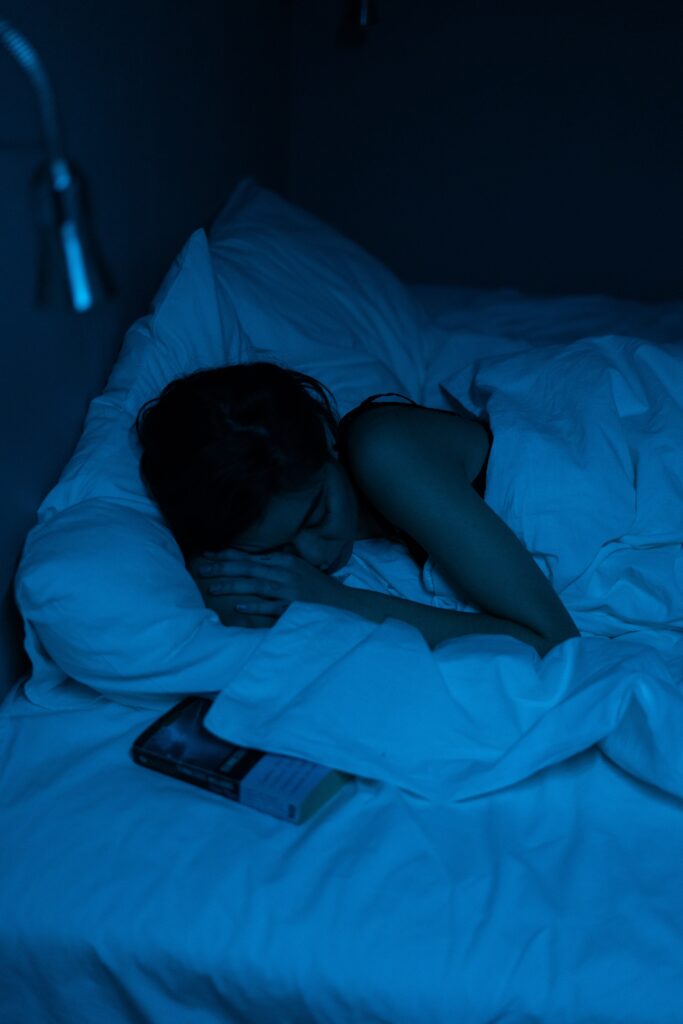
Follow this sleep hygiene checklist and rest well.
Having a good night’s sleep is so important, especially for us adults. We used to take sleep for granted but now, we feel tired and sleep almost every time.
Because of work or any other personal issues, getting that good sleep can be hard sometimes. This is why I made this checklist so we can start somewhere and get that rest we deserve. If we are well-rested, we can certainly do what we want to do!
Hope this blog gave you some insights. Please share more tips in the comments section. And if you know someone who needs this, don’t hesitate to share this blog. Let’s all grow together!
Rooting for you,
Meredith Blaise ♡
Newsletter
Get weekly tips, guides, or inspirations for your growth every week!
Thank you!
You have successfully joined our subscriber list.


You May Also Like

10 Tips on How to Achieve your Fitness Goals.
06/25/2022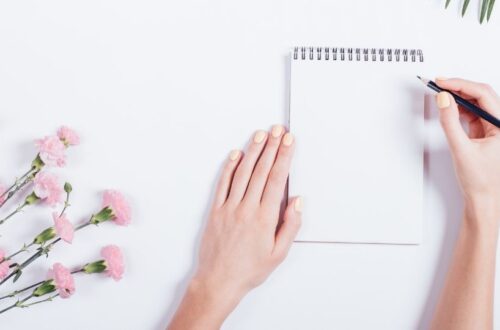
What to write in your journal to focus on your goals
01/04/2021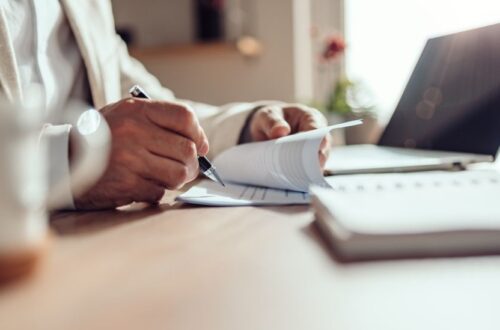
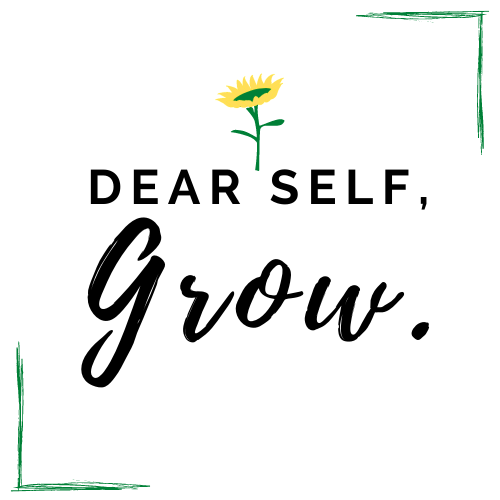
7 Comments
Tammy Harris
I had never heard of sleep hygiene before today. I have awful sleep hygiene….lol I will be trying these tips starting today! Thanks so much for sharing with us.
Meredith Blaise
I hope this helped you get a good sleep! 🙂
George
Your lines about staying awake trying not to reply to the boomer comment had me laughing. So relatable! The overthinking thing gets me too. And I definitely agree with getting back up instead of laying there when you can’t sleep. It has always made me feel more restless… Great tips all around. My cpap machine has helped with the daytime fatigue but my sleep hygiene still needs a lot of work.
Meredith Blaise
I was pretty sure that someone can relate to that haha I’m glad that you are getting good rest!
Travel Fit Psych
Agree that sleep is so important for good functioning. Love the information and detail in this blog. Thanks for sharing!
Meredith Blaise
No problem! Thanks for the input <3
Katrina Crandall
Thank you for this helpful article on sleep hygiene. I have a terrible time sleeping – especially in 2020. I admit I need to improve in almost every area you listed here! I will make an effort to start improving in these areas for the sake of my health!